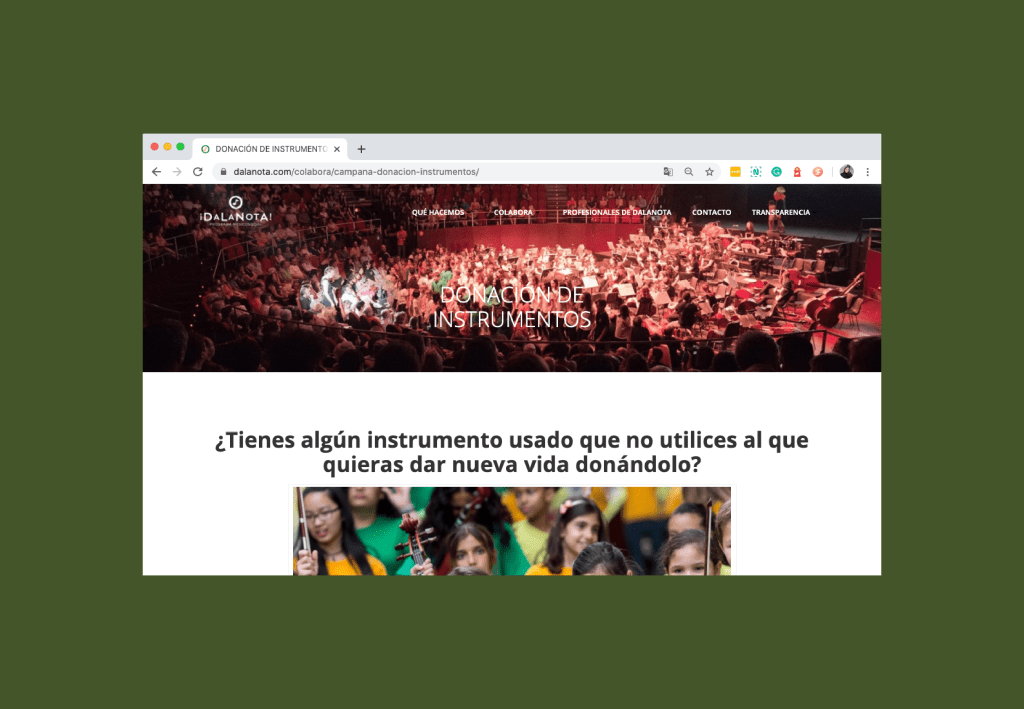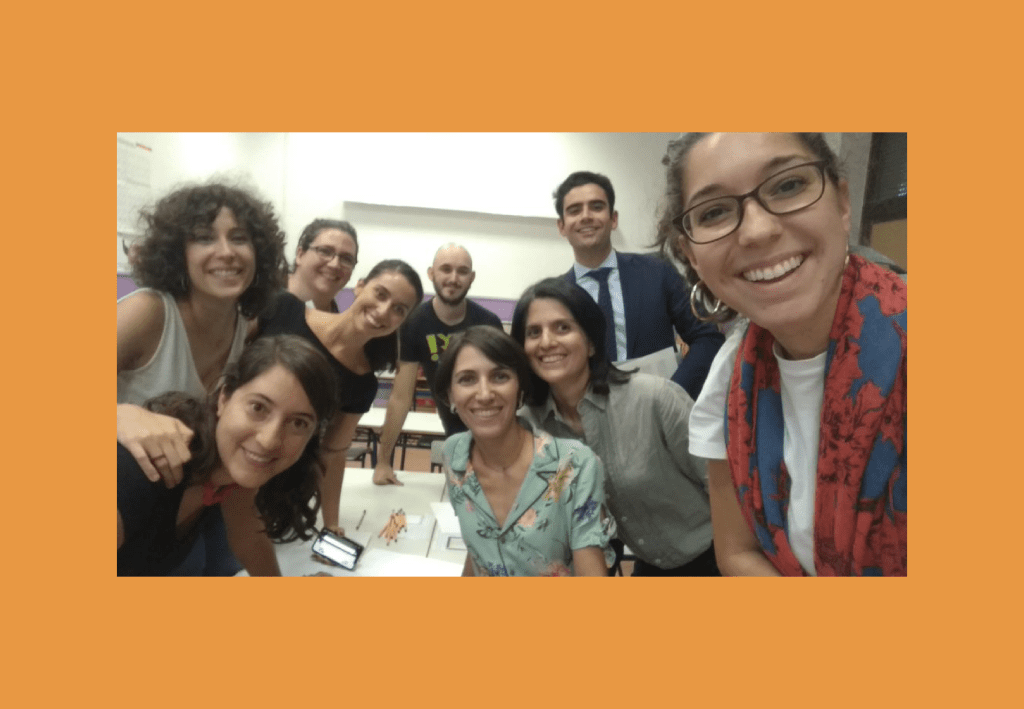Learning how to leverage website traffic SEO for nonprofits is a powerful way to raise donations and recruit volunteers.
Working for a nonprofit is gratifying but challenging – especially if you are in the marketing department. Brace yourself. Although the principles of digital marketing remain the same, SEO for nonprofits does require you to change your mindset and approach quite a bit.
Within the past two years, I have had the honour of working with a number of small grassroots organizations such as Entre Mujeres, Work for Social, Yuwa India and Feed a Billion.
I’ve experienced firsthand the struggles and tribulations of leading philanthropic marketing campaigns. Out of all of those tribulations, I learned that doing SEO for nonprofits is a powerful way to raise donations and recruit volunteers.
1. Pinpoint the objective of your website traffic.
Although this difference is obvious, it takes time for anyone new to the nonprofit space to adjust and change the way they approach problems or apply standard SEO advice.
While a company’s sole purpose is to make a profit, a nonprofit’s purpose is not. Duh, right?
Unlike a company, a nonprofit can have several objectives all at once. Their calls to actions could be to donate, adopt, volunteer, be an advocate, or all of the above. Oftentimes, the objectives shift depending on seasonality.
The role of SEO for nonprofits is to turn organic website traffic into something. That could be a donation, a conversation, or even a partnership. When you, as a nonprofit, pinpoint the objective of your traffic, you will have a lot more clarity when creating strategy.
As yourself what you want your website visitors to do. Do you want them to donate or volunteer? Once you have an answer, you’ll know exactly the kind of content you need to create to attract those visitors and the metrics you need to set up to measure the success of your SEO.
2. Identify the content and keywords that align with your objectives.
Meet Da La Nota, an afterschool music program for children in Madrid, Spain. Using music and dance, this nonprofit helps children at risk of poverty and social exclusion.
They identified 3 primary objectives for their website traffic:
- Increase monetary donations.
- Increase musical instrument donations.
- Recruit music teachers as volunteers.
Once they were clear on their objectives, they were able to whip up a content marketing strategy and keyword research within a matter of hours. They created a webpage for each objective and often refer back to them in their email newsletters, social media, and blog posts.
Their webpage, Donate Musical Instruments, is killing it on search engines. In fact, it brings in dozens of second-hand instruments every year.

They have the top rankings for the keywords “donación de instrumentos musicales” in Google Spain.
All it took was a clear SEO strategy and some simple on-page optimization. No backlink building needed.
3. Resources are limited. Create less but higher quality content.
Doing SEO for nonprofits forces you to be ultra-creative, super resourceful, and make very calculated decisions.
After years of doing SEO for small businesses, I thought I understood what “small budget” and “limited resources” meant.
I was so wrong.
The money that nonprofits have is either donations or government grants, which means budgets are extremely tight and every dollar is watched and scrutinized.
Since resources are so limited, it is so much more important for nonprofits to be very selective with the kind of content they create.
Our SEO advice for nonprofits is the same advice we give to small businesses.
Create less but high-quality content.
Instead of publishing 1 mediocre blog post a week, dedicate your resources to publishing 1 outstanding blog post a month.
What’s considered high-quality for one nonprofit sector may look different for another, depending how competitive and mature the sector is. As a general rule of thumb, you need to create better content than what’s currently on the first page of Google.
To create high-quality content, you need to create the best content readers have ever seen. That usually means a combination of:
- Publishing content that is between 1,000 to 2,000 words.
- Providing the most up-to-date information and research.
- Giving actionable advice and step-by-step instructions.
- Putting together a list of resources or recommendations for readers to learn more.
- Complementing it with visual content like infographics and videos.
- Offering a unique point of view and bust any myths or misconceptions.
- Including a section of Frequently Asked Questions (FAQs).
4. Carefully manage your online reputation.
Doing digital marketing and SEO for nonprofits sometimes feels like walking on eggshells. Your reputation is ultra-fragile.
Every message has to be very diplomatic, well-informed and inclusive. Otherwise you run the risk of being labelled as intimidating, racy or politically incorrect. And nobody wants to donate to or volunteer with an inappropriate organization.
If your nonprofit is working with victims, there are a lot of restrictions on the content you can create to protect the victim’s privacy.
When I worked with SoulEm to redesign their website, the first thing the founder told me was that we could not use any of the victim’s information. SoulEm is an organization that takes in victims of sex trafficking and gives them skills to build a new life. Many of the women are still hiding from their traffickers and even a few strings of details are enough for their predators to suspect their identity.
We couldn’t retell their stories using alternative names. We couldn’t take photos of their faces, and if we wanted to use a photo of their hands, we had to make sure that the women didn’t have any distinctive scars, marks or tattoos.
How do you get people to care about your cause and donate money when you can’t show them what the cause is all about? Some people may not even believe you’re legitimate without content as evidence.
Dealing with sensitive content and messaging is probably one of the most difficult aspects of SEO for nonprofits.
Carefully managing your nonprofit’s online reputation is paramount and should be integrated into your routine SEO processes.
Set up a Google Alert for your nonprofit to get immediate email notifications when anyone mentions your organization, projects or brands.
For social media, follow any hashtags related to your nonprofit and brand. BuzzSumo has a great tool to track brand mentions on all social media platforms. They also offer special rates for registered nonprofits and charities – just email their support team.
We also encourage you to do a weekly check of your online presence. Search “site:www.your-website.com” into Google and go through the first 3 to 5 pages. If you see anything problematic, you can request Google take it down.
Also search your brand on all social media platforms. Look for any content or accounts that are out-of-the-ordinary and report it if need be.
Keeping an eye on your online reputation on a regular basis will help address it as soon as possible and before it spirals out of control.
5. Pitch meaningful stories to press for backlinks.
Let’s be honest. Nonprofits are (almost) always interesting. They have a story and they trigger our emotions.
I cannot say the same for all businesses.
That is a big fat bonus point for nonprofits.
It’s much easier to get press coverage and backlinks for nonprofits. I will never forget the day I sent out a press release for a nonprofit collaboration and within 24 hours we were covered by 7 media outlets.

Since there is a story to tell, journalists are more willing to listen and if they decide to feature you, they generally have a lot to work with.
Journalists and bloggers are not the only ones that are all ears. Social media and blog readers are a lot more responsive to nonprofits than to companies. You can expect high engagement rates.
Whether you do it online or offline, build a network of connections with journalists and bloggers in your field. Really nurture a relationship with them and help them however you can. When you scratch their back, eventually they will scratch yours. Create a list of contacts that you can go-to when you have a story to pitch.
SEO for nonprofits will make you a better marketer.
Working for a nonprofit has its perks and it also has its trials and tribulations. However, these challenges will make you a better marketer and sharpen your SEO skills.
They will push you to come up with creative solutions and explore strategies or tools you would have never dared to look into if you have the convenience of working with for-profit organizations.




